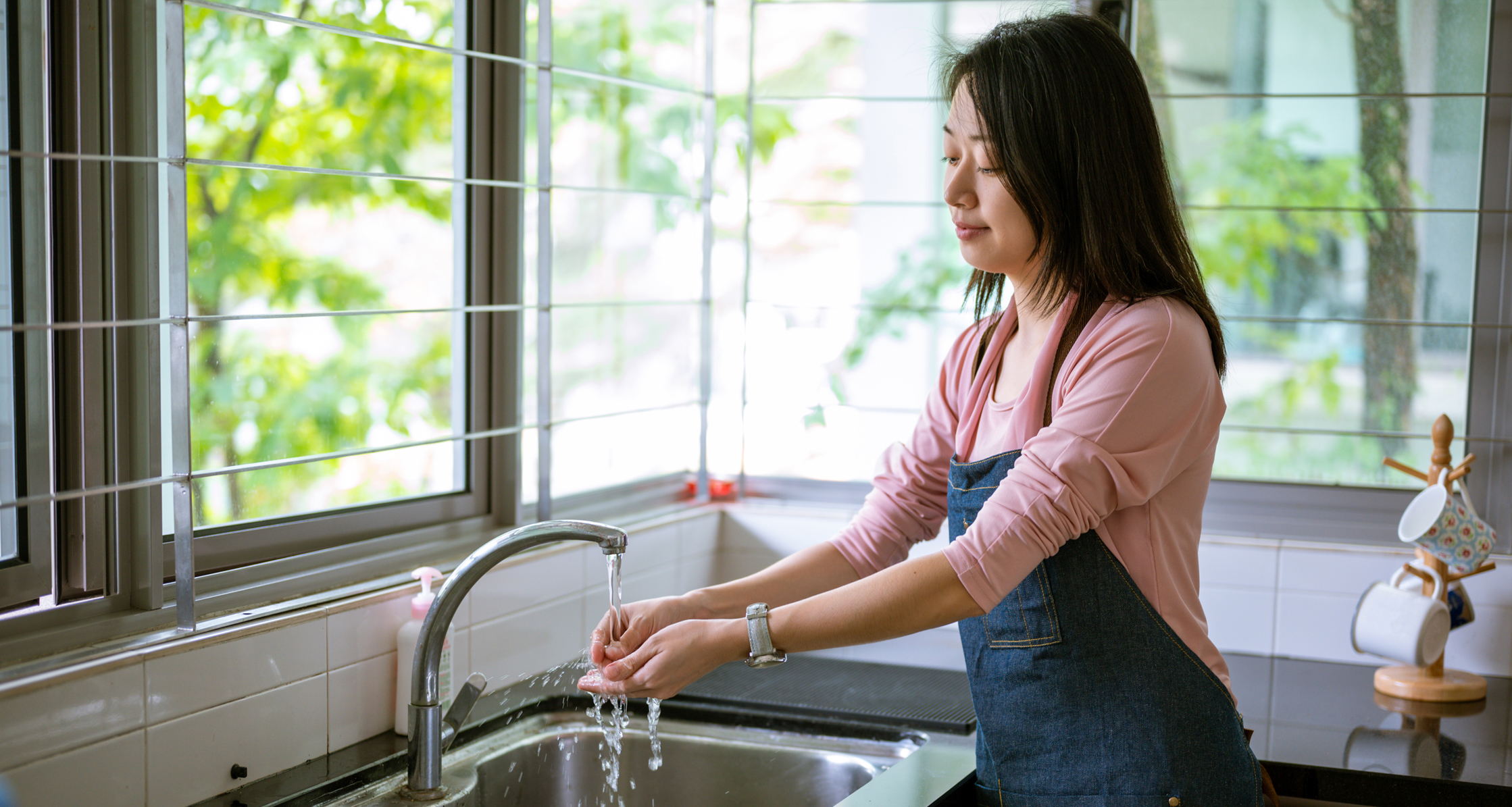Think about how many things your hands touch daily —handrails, door handles, your keyboard, your phone, food, bathroom surfaces, toilets, other people and much more. All of these surfaces have germs. When you touch your mouth, nose or eyes, you’re likely to get some of these germs into your body, making you sick. That is why hand-washing—the right way—is so important. Keeping your hands clean is one of the easiest and most important steps you can take to avoid getting sick and spreading germs to others.
Why Is Hand-Washing So Important for Your Health?
Keeping your hands clean is one of the easiest and most important steps you can take to avoid getting sick and spreading germs to others.
You might think that washing your hands is a topic for kids, something we already know about and do regularly. But according to a recent study by the Centers for Disease Control and Prevention (CDC), only 31% of men and 65% of women wash their hands after using a public restroom. Knowing that, we’ve still got some work to do! Here’s why it matters:
- Removing germs through hand-washing can help prevent the spread of many of the illnesses that can keep you out of work or school, including:
- Respiratory infections like pneumonia and COVID-19
- The common cold
- Flu
- Hand-foot-and-mouth disease
- Diarrhea
- Norovirus
- Certain skin and eye infections
- Preventing sickness reduces the amount of antibiotics people use and the likelihood that antibiotic resistance will develop.
- Washing your hands protects the people around you who are at particular risk from infectious diseases such as the very young, the elderly, those with pre-existing conditions and those with a compromised immune system.
How Do I Wash My hands the Right Way?
Washing your hands is one of the easiest ways to prevent the spread of germs, but there’s a right way to do it. The CDC recommends washing your hands in a specific way to avoid getting sick and spreading germs to others. Here it is:
- Wet your hands with clean, running water. It doesn’t matter if the water is hot or cold.
- Apply soap to your hands. If you just use water, you can’t get all the microbes and germs off your skin. You can use regular soap or antibacterial soap—one is not better than the other in day-to-day situations.
- Lather and scrub. You should scrub between your fingers, the front and back of your hands and under your nails for at least 20 seconds. That’s equivalent to humming “Happy Birthday” twice. If you wash them for a shorter time, you will not remove as many germs.
- Rinse your hands under clean, running water.
- Dry your hands using a clean towel or air dry them. Don’t skip this step—germs can be transferred more easily to and from wet hands.
If you don’t have soap and running water, use hand sanitizer. Keep an extra bottle in your car or your bag, so you don’t have to worry when you’re out. Make sure to use enough and don’t wipe it off before it has a chance to dry or it won’t be as effective. Your sanitizer should have at least 60% alcohol to be the most effective. Hand sanitizers without 60% alcohol do not consistently kill germs. The same thing goes for wipes. Hand-sanitizing wipes with at least 60% alcohol will kill germs on your hands. Baby wipes and other water-based wipes may make your hands look cleaner, but they’re not designed to kill germs.
If you don’t have sanitizer or soap, but do have water, rub your hands together under the water and dry them with a clean towel or air dry them. This will get some germs off your hands, even though it’s not as effective.
When Should I Wash My Hands?
Wash your hands often, but especially at these times:
- After coughing or sneezing
- Before and after eating
- Before preparing food
- After handling raw meat
- After petting animals
- After using the bathroom
- After changing someone’s diaper
- Before and after caring for someone who is sick
- After touching garbage
- After cleaning up after your pets
- After touching “high-touch” areas such as grocery cart handles, doorknobs, gas pumps, etc.
Additional Information for Eliminating the Spread of Germs
-

Use your elbow for coughing and sneezing. Do not sneeze into your hand.
- Clean the surfaces in your home regularly. Think about “high-touch” areas such as doorknobs, light switches, keyboards, countertops and more.
- Sanitize and clean your phone on a regular basis.
- Teach your children about good hand hygiene. They may need to be supervised and taught how to properly rub their hands together, dry them, etc.
- Change your dish and hand towels often.
- Wash or change out your sponges and cleaning cloths regularly.
- Check out the CDC’s website for additional information on hand-washing and the science behind why it’s so important.
Taking this one easy step—washing your hands the right way—helps all of us stay healthy and limits the spread of germs.








